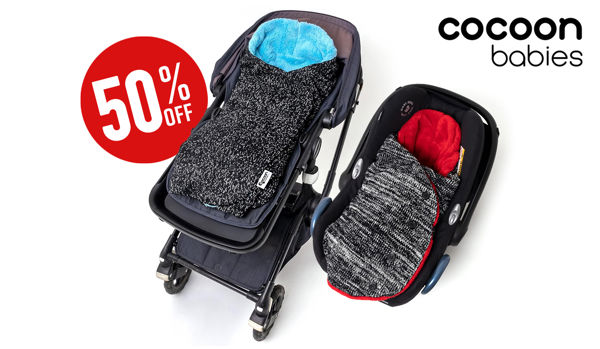As your baby’s due date approaches, you will probably find yourself wondering how you will know when you are actually in labour.
There are a number of early signs and symptoms to look out for which will signal that your baby is on the way. One word of caution though, early labour can be slow-going so these signs don’t necessarily mean your little one’s arrival is imminent or that you should immediately rush off to the hospital.
Known as the latent phase of labour, early labour can take hours or even days. There’s important work going on though as your cervix is gradually thinning and starting to open, ready for the active phase of labour.
What Are The Early Signs of Labour?
In later pregnancy, it is usual to feel a bit uncomfortable and experience twinges and practice contractions, which are known as Braxton Hicks.
This can sometimes cause confusion and it is quite common for pregnant women, especially those expecting their first baby. You may have one or two false starts where they think labour has started but it actually hasn’t.
However, there are a number of signs which could indicate your body is getting ready for labour. One of the more obvious signs is a mucus plug discharge, often referred to as a show, which you might notice in your knickers when you go to the toilet. This plug will be a heavy discharge, which is sticky and jelly-like and might even include a small amount of blood.
The show is nothing to worry about and is simply a sign that your cervix is starting to open. For some women, the mucus plug will be released as labour is starting but for others, the process may still take several days. You may also find that you never notice your show at all.
Women often get a burst of energy and a desire to clean, organise and prepare for their baby in the days leading up to labour, known as the nesting instinct. Other, more physical symptoms, include backache, mild cramps which feel similar to period pains and loose stools, which may even seem like diarrhoea.
You may also experience an urge to go to the toilet frequently. This is usually a sign that your baby’s head is pressing down on your bowel as they get into the right position to be born.
You may start to have painful contractions, which come and go in waves as your uterus contracts. If you place your hand on your bump, you should feel it tightening and becoming harder while you are experiencing a contraction.
Contractions can feel very similar to Braxton Hicks so it may take a while to work out whether they are the real deal or not. If your contractions continue even when you change position, come at regular intervals and last around one minute, this is likely to be the start of labour.
Will My Waters Break in Early Labour?
For some people, their waters breaking will be the very first sign they are in labour. But for others, their waters might remain intact until a much later stage.
Your waters might not even break at all or your doctor or midwife might offer to break them for you to speed your labour up.
If your waters do go in early labour, this might feel like a sudden gush of fluid but it isn’t always so dramatic. Sometimes, it will just feel like a gradual trickle and it might be difficult to work out whether it is amniotic fluid or urine.
If you think your waters might have broken, contact your midwife for advice. She may ask you to wear a sanitary towel to catch some of the fluid so she can confirm whether or not it has come from the baby’s amniotic sac.
Amniotic fluid should be clear in colour so if the fluid is discoloured, smells bad or contains any blood, contact your midwife or your local maternity unit immediately.
What Should I Do If I Think I Am In Early Labour?
As early labour can take a while, the best thing to do at this stage is to get plenty of rest and save your energy for the birth itself. Eat some healthy, nutritious food (if you can manage it) and relax.
Try not to watch the clock at this stage. Instead, distract yourself with activities you enjoy, this could be watching your favourite film or TV show, talking to a friend, going for a gentle stroll or having a nice warm bath.
If you are having painful cramps, it is fine to take some pain relief, such as paracetamol but make sure you take note of when you take it so you don’t end up taking more than you should.
If you think you are in early labour and you are less than 37 weeks pregnant, call your midwife or maternity unit for advice. You should also seek medical attention if you experience any bleeding or your baby is moving less than usual.







